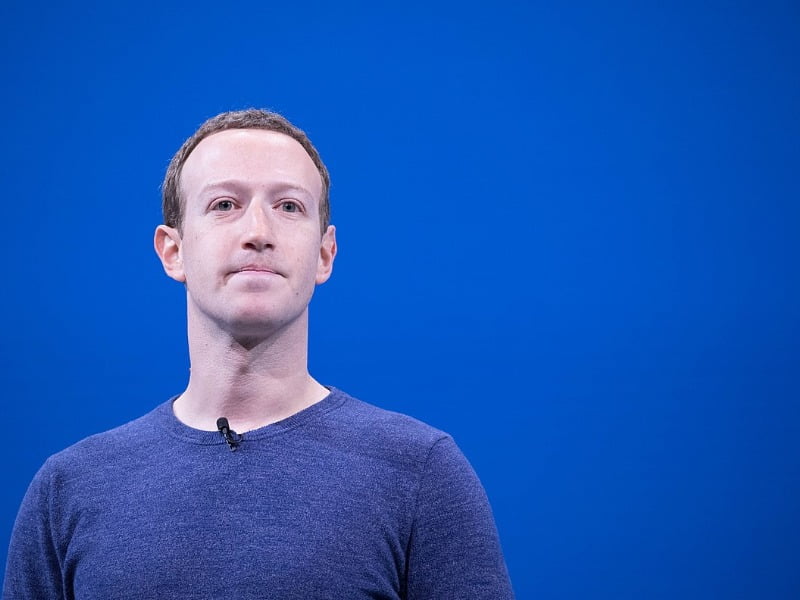It would be uneconomical for Facebook to continue to allow news content on its platform in Australia if government goes ahead with its planned bargaining code, and publishers should prepare for a world where they can’t post their content, the tech giant has warned.
Facebook executives fronted the Joint Standing Committee on Electoral Matters on Wednesday as part of its inquiry into the conduct of the 2019 federal election. The company defended it’s practice of not fact-checking political ads and the tiny amount of fact checks completed last year.
Facebook Australia vice-president for public policy Simon Milner also defended the company’s recent threat that it would prevent any news content being posted on the platform if the federal government implemented the ACCC’s proposed bargaining code with media companies.
The government is currently consulting on draft legislation requiring Facebook and Google to negotiate revenue sharing deals with media companies for content posted on their platforms.

Under the rules, developed by the Australian Competition and Consumer Commission, if a deal isn’t reached in three months, the two parties would enter into forced arbitration and an independent panel would then select one of the final offers.
Earlier this month Facebook threatened to ban both local and international news content on the platform in Australia, saying the code “defies logic” and “misunderstands the dynamics of the internet and will do damage to the very news organisations the government is trying to protect”.
Google also railed against the proposal, warning it would damage its services and embarking on a widespread campaign to gather public support against the scheme.
Addressing the parliamentary inquiry, Mr Milner said this threat was a “last resort” for the Facebook.
“This is not something we want to do at all, nor do we think about doing this lightly. This is really a last resort after having tried really hard over the last two and a half years to support a more informed and more balanced framework for how the relationship between news publishers and digital platforms could and should be regulated,” Mr Milner told the inquiry.
“We had to take the decision with an incredibly heavy heart that if the regulatory framework as set out is carried forward it would simply be uneconomical for us to carry news going forward.”
Now is the time for Australian publishers to prepare for a world where they cannot have their content posted on Facebook, Mr Milner said.
“We want publishers to adapt to how they share news online in a world where they can’t share news on our platforms. Hopefully they’ll be able to do this in a way where people can still access news,” he said.
But current Facebook measures such as fact-checking will remain in place even if news is removed, the company confirmed.
There are currently two accredited Australian Facebook fact-checking agencies, Agence France-Presse (AFP) and Australian Associated Press (AAP), but only 17 fact checks were completed in total during last year’s election campaign.
It is up to the fact checkers to decide what to look at, and this doesn’t mean that only 17 posts were questioned over their legitimacy, Facebook Australia head of public policy Joshua Machin told the inquiry.
“They can either proactively fact check a particular post, but we also have a cue in which we refer potentially viral posts, and the fact checkers have full independence and discretion over which of thoe posts they choose to fact check,” Mr Machin said.
“Ultimately the third-party fact checkers, in order to protect their independence, they have full discretion over the number of fact checks they undertake.
“And once a post has been found to be false, we use artificial intelligence to apply the same treatment to similar posts that make the same claim that has been found to be false. Even though the number of fact checks were 17, the ultimate number of posts that have received that treatment would be much higher.”
Posts that won’t be fact checked at all though are advertisements from political figures or parties, with the executives reiterating Facebook’s hands-off approach to the issue.
“In genera,l we do not fact check politicians. We think it’s important for debate to see what politicians are saying and for opponents to be able to respond to that, and for the media to be able to investigate claims in political ads,” Mr Milner said.
“Facebook does the same as every other media platform. If you’re walking down the street and see an ad on a billboard, an opponent may think that ad contains false information and they have an opportunity to respond to that, maybe with an ad further down the road, but there’s no expectation that the company who enabled you to put the ad on the billboard had to put something on it to say the information was false.”
The Facebook execs also said the company would be open to a ban on political advertisements on the platform in the days immediately before an election, as is currently in place for traditional media outlets.
Do you know more? Contact James Riley via Email.


The so-called ACCC code is actually Rupert Murdoch/Newscorp drafted and designed to prop up their ailing business. Let Facebook et al stop publishing their news – we all know where to go to get it directly and, believe me, it’s not to a Newscorp masthead.